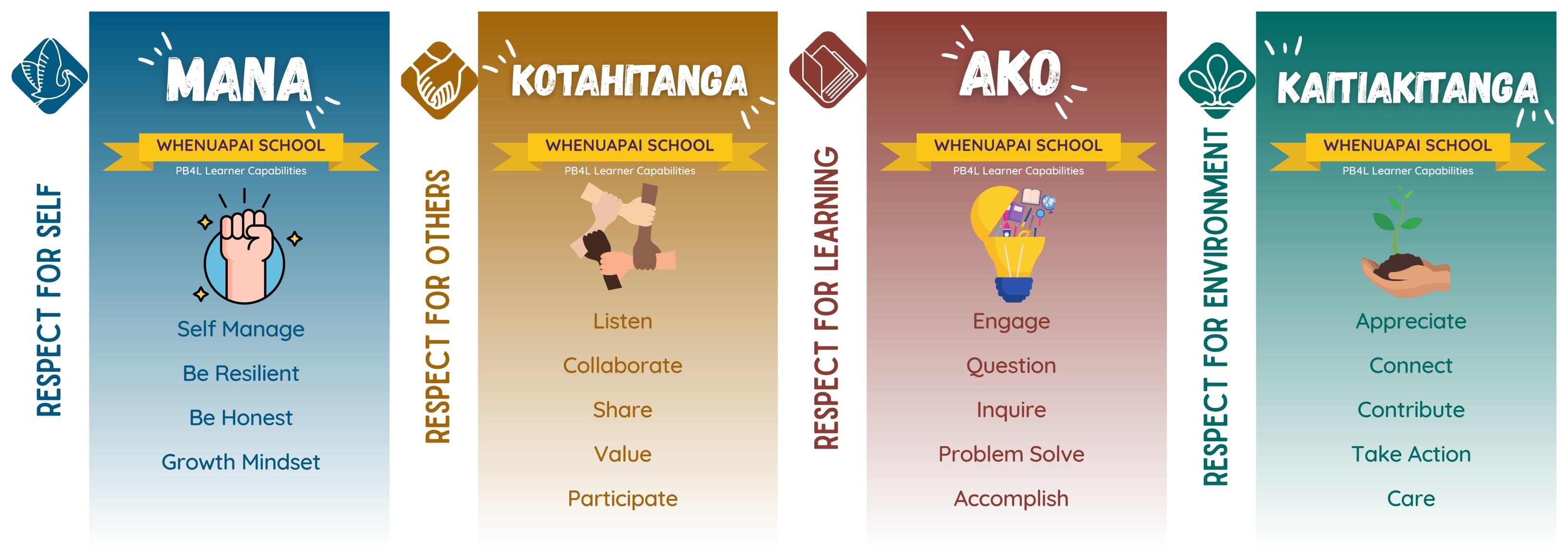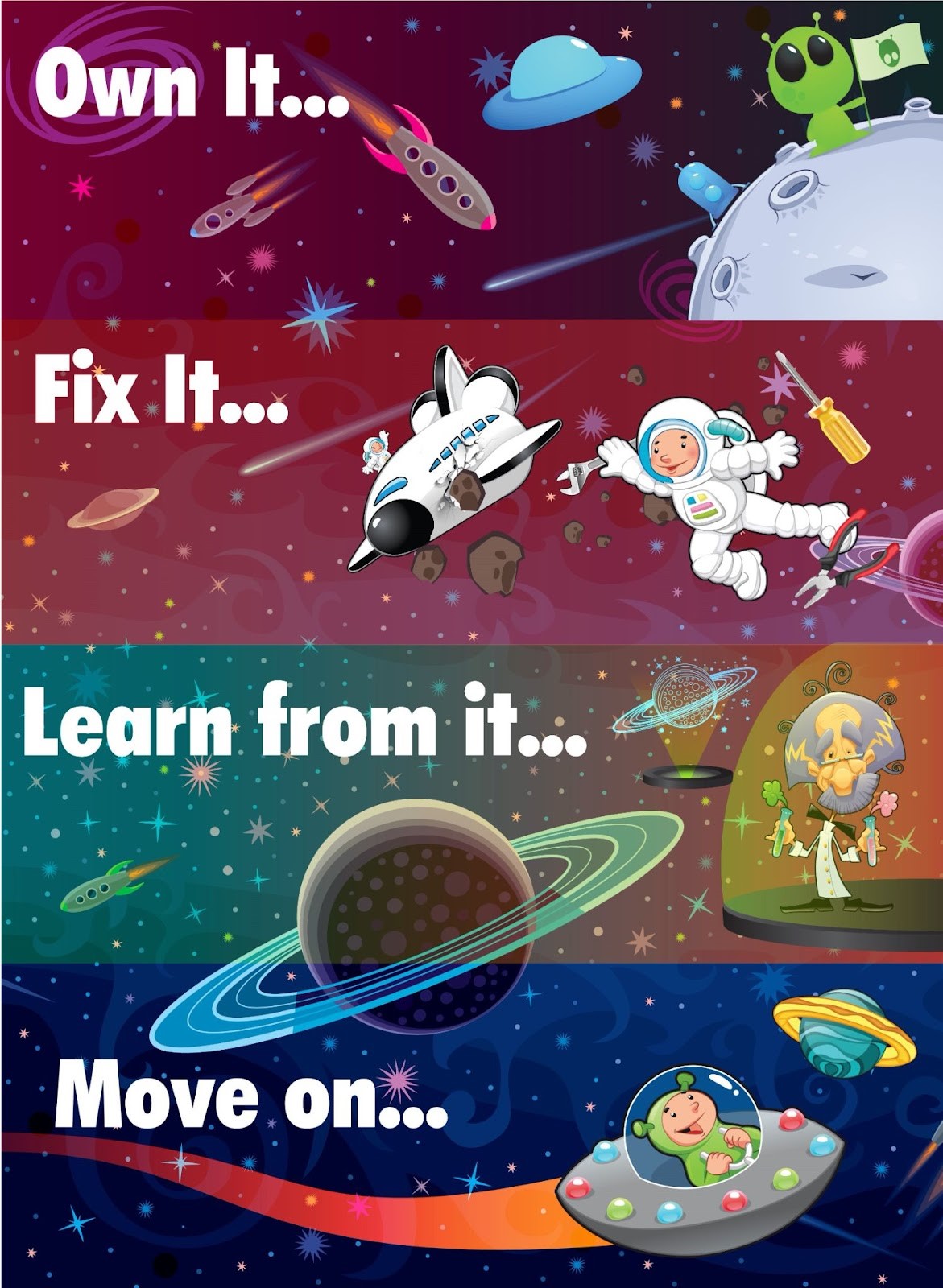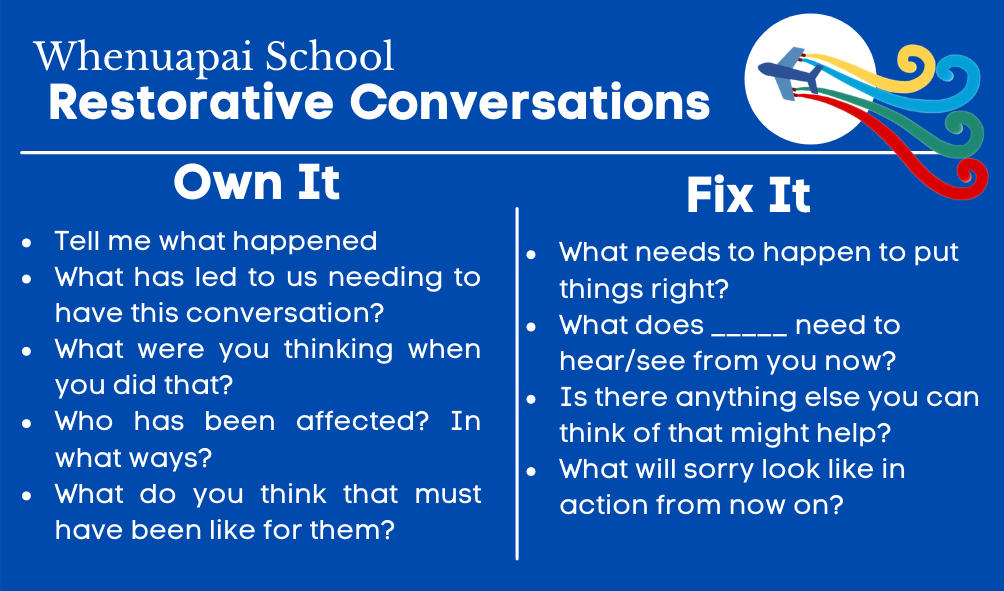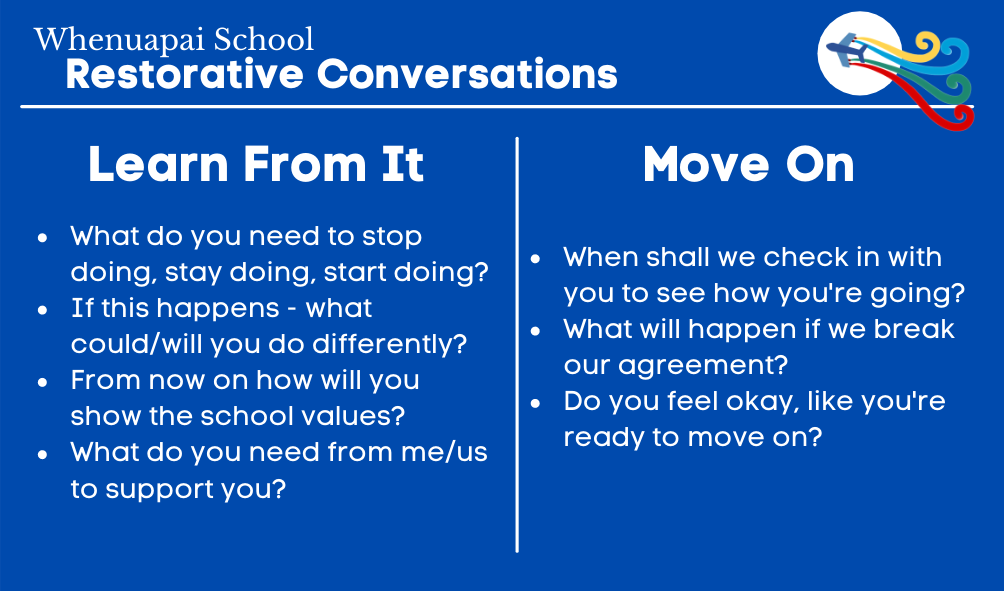Restorative Practice is how we address conflict or negative behaviour, with the aim of learning and moving forward. It is a relational approach to managing school life grounded in beliefs about equality, dignity, mana and the potential of all people.
The fundamental hypothesis of restorative practices is disarmingly simple: that human beings are happier, more productive and more likely to make positive changes in their behaviour when those in positions of authority do things with them, rather than to them or for them.

MoE Guidelines – Positive Behaviour for Learning (PB4L)
As a Positive Behaviour for Learning (PB4L) School, we teach the expected behaviours through our PB4L Values and Learner Capabilities. The PB4L Restorative Practice approach focuses on building and maintaining positive, respectful relationships within a school, staff to staff, staff to student and student to student, and offers staff best-practice tools and techniques to ensure issues are more easily managed, and restore relationships when things go wrong. Our Restorative Practice framework supports conflict resolution, and enables our tamariki to acknowledge their part within an incident and identify ways to ‘fix it’. Ongoing staff training continues to improve our success in this area, as we become more skillful at helping mediate issues between peers effectively.
Restorative Conferencing is a process that provides us as a school with ways to repair harm and restore relationships. The restorative conversation can take many forms, however the key principles and essence of the conversation remain the same. It uses the stories of those involved in a situation, and the people close to it to:
- explore what has happened and who has been affected.
- hold those who have caused harm accountable for their actions.
- provide support to those who have been harmed, and others involved.
Key to success in this Restorative Process is remembering that “The problem is the problem, the person is not the problem”. A primary principle of a Restorative Practice Conference is to avoid further destruction of the mana of all participants.
Within this process:
- No-one will be spoken of as if they are the problem.
- We name and speak about problems without speaking about any person as a problem.
- The emphasis within this process is on maintaining, rather than destroying relationships, by seeking to make amends, rather than by enforcing punishment.
- The aim of the Restorative Conference is to allow for healing through reconciliation, an acknowledgment of the past and a moving forward.
- Everyone has an opportunity to speak candidly, in a safe space, to tell the story from their perspective, explore the harm caused, own their part in the problem (if any), and consider some options for restoration or agreement moving forward.
At Whenuapai School, we consistently use the “Own It, Fix It, Learn from It, Move On” Framework. All of our tamariki are familiar with this framework and it is used consistently across the School. Our data indicates a significant decrease in PB4L incidents, an increase in successful student outcomes, and a notably positive effect on student wellbeing and resilience.
|
Own It: Tell the story – Tell me what happened? What were you thinking when you did that? Explore the harm – Who do you think has been affected? In what ways? What do you think that felt like for them? Fix It: Repair the harm – What do you think needs to happen to put things right? What do you think ________ needs to hear/see from you now? Learn from It: Reach an agreement – If this happens again, what will you do differently? What do you need to stop doing, stay doing, start doing? Move On: Plan follow-up – When would be a good time to check in with you and see how you’re getting on? What will happen if our agreed outcomes haven’t been reached?
|
 |
Kete Book Two – Holding a Restorative Conversation


